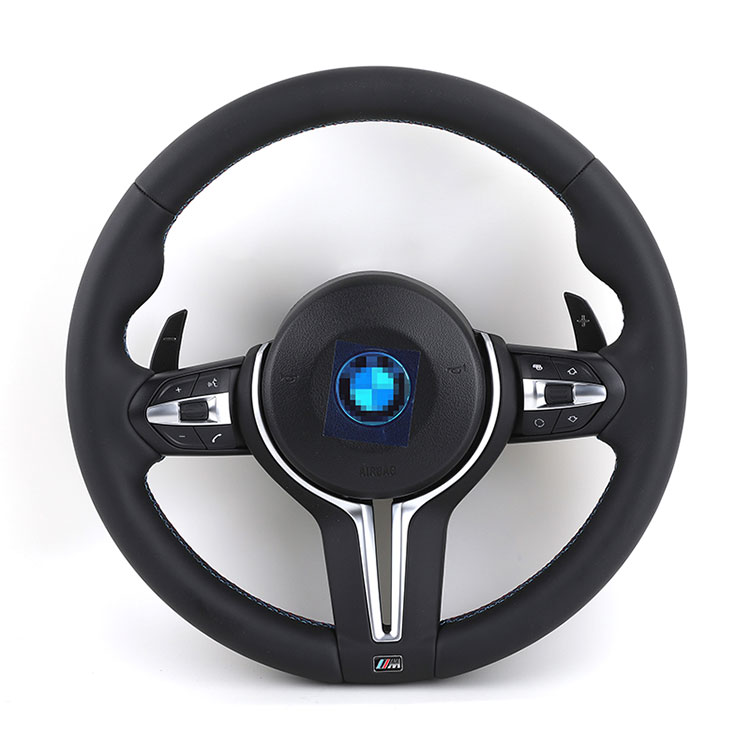Why Is a High-Performance Steering Wheel Shaping the Future of Driving?
2025-11-26
A steering wheel is the primary interface between the driver and the vehicle, functioning as both a control mechanism and a critical safety component. Its design, structure, materials, and ergonomics directly influence driving accuracy, stability, and user comfort. As vehicles evolve toward higher performance and smarter control systems, the steering wheel is no longer a simple circular device—it has become an engineered product integrating advanced materials, precise geometry, and refined tactile feedback.
What Technical Parameters Characterize a Quality Steering Wheel?
A professional steering wheel must demonstrate structural strength, accurate response, and long-term durability. The following parameters reflect the technical criteria commonly used in automotive, racing, and industrial vehicle applications:
Steering Wheel Technical Specifications
| Parameter | Description |
|---|---|
| Diameter Options | 320mm / 350mm / 370mm / 380mm (custom sizes available) |
| Material Options | Premium leather, PU, microfiber leather, carbon fiber, forged aluminum core, magnesium alloy skeleton |
| Core Structure | Multi-layer reinforced frame with impact-resistant aluminum or composite material |
| Grip Design | Ergonomic contour grip, perforated anti-slip texture, optional thumb supports |
| Stitching | Double-line industrial stitching, flame-retardant thread, customizable color |
| Finish Options | Matte, gloss, carbon fiber weave, textured leather |
| Control Integration | Multi-function buttons, paddle shifters, audio control, cruise switch compatibility |
| Airbag Compatibility | Supports OEM airbag modules (varies by model) |
| Heat Resistance | Up to 120°C surface temperature endurance |
| Cold Resistance | Down to –40°C without cracking or hardening |
| Torque Load Capacity | Tested under 100,000+ rotational cycles |
| Weight | 0.8–1.3 kg depending on material and structure |
These parameters illustrate the engineering complexity behind a high-quality steering wheel. They also show why design precision directly affects the steering experience, stability, and safety.
Core Analysis: What, Why, and How—A Deep Technical Examination
What makes a steering wheel essential to vehicle control?
A steering wheel determines how the driver inputs directional commands into the vehicle’s steering system. The quality of torque transfer, hand position stability, and grip friction all influence how well a driver can maintain lane discipline, navigate sharp turns, or respond during high-speed maneuvers.
Why does the engineering of a steering wheel matter?
Its performance is closely tied to three major factors:
-
Safety – A structurally reinforced wheel minimizes deformation in collisions and ensures stable handling at high speeds.
-
Comfort – Long driving sessions require ergonomic grips and surface materials that reduce fatigue.
-
Control Precision – The wheel must transmit driver inputs accurately; poor materials or weak structure introduce unwanted flex or slippage.
How does a precision-built steering wheel improve driving performance?
A well-engineered wheel enhances:
-
Directional accuracy through optimized geometry
-
Grip stability via premium textures and ergonomic thickness
-
Responsiveness with a rigid core that prevents torque loss
-
Driver confidence by providing tactile feedback that matches road conditions
These improvements combine to create smoother maneuvering, faster reaction time, and more reliable control across weather and terrain conditions.
Future Trends: Why Are Steering Wheels Becoming Smarter, Safer, and More Customized?
The steering wheel sector is experiencing rapid transformation. Several trends are shaping its future:
Trend 1: Integration of Smart Controls
Modern wheels increasingly include voice command triggers, digital displays, sensor-activated buttons, and haptic feedback zones. These features enhance safety by allowing drivers to control essential functions without taking their hands off the wheel.
Trend 2: Lightweight Composite Materials
Carbon fiber and magnesium alloys are becoming preferred materials due to their strength-to-weight advantages. Lighter wheels reduce rotational inertia and improve handling precision.
Trend 3: Ergonomic Personalization
Vehicles are becoming more user-centric, driving demand for tailored grip shapes, stitching colors, diameter choices, and custom performance inserts.
Trend 4: Enhanced Safety Integration
Future wheels will integrate more advanced driver monitoring functions, including:
-
Hand-detection sensors
-
Fatigue tracking
-
Emergency takeover alerts
These technologies support semi-autonomous and autonomous driving systems.
Trend 5: Sustainability and Eco-Materials
Manufacturers increasingly adopt recycled composites, water-based coatings, and eco-friendly polymers to reduce environmental impact.
Common Steering Wheel Questions (FAQ)
Q1: What factors determine the lifespan of a steering wheel?
A high-quality steering wheel typically lasts 5–10 years depending on usage, climate exposure, and material type. Leather surfaces require conditioning to prevent cracking, while carbon fiber or composite structures can endure significantly longer due to their resistance to heat and deformation. Proper maintenance—such as avoiding prolonged UV exposure and cleaning with pH-balanced agents—significantly extends longevity.
Q2: How does steering wheel diameter affect driving performance?
Smaller wheels (320–350mm) provide quicker steering response, ideal for sports cars and racing applications. Larger wheels (370–380mm) offer increased leverage, making them better for trucks, SUVs, and heavy-duty vehicles. Choosing the right diameter improves comfort, maneuverability, and control accuracy based on vehicle type and driving style.
What Makes a Reliable Steering Wheel Manufacturer Stand Out?
A dependable steering wheel is defined by its engineering integrity, ergonomic comfort, refined materials, and consistent performance across temperature and load extremes. As driving environments evolve, steering wheels must integrate smarter controls, enhanced safety technologies, and customizable features to meet diverse user needs.
Brands that excel in precision manufacturing, material expertise, and functional innovation will lead the next phase of steering wheel development. Shine Way is recognized for delivering high-quality, customizable, and performance-driven steering wheel products tailored to OEM and aftermarket demands.
For specifications, customization inquiries, or bulk orders, contact us to receive professional support and technical guidance.
